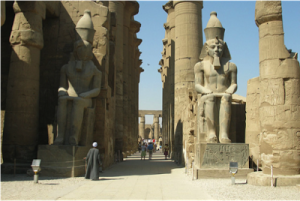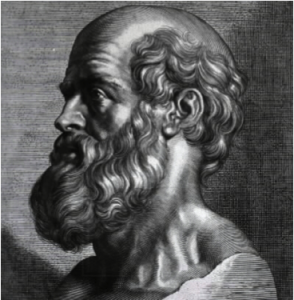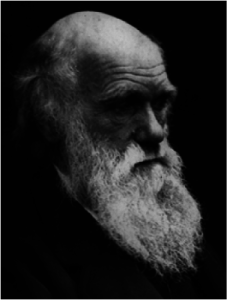Science and religion haven’t always seen eye-to-eye over the centuries. The ways in which they impact upon one another have changed hugely, with each civilisation and religion having its own views and rules. Here, I’ll take a look at 3 major moments in history that showcase this ever-changing, and often tumultuous, relationship.
The Ancient Egyptians (~3150 BC to ~30 BC)
The Egyptians didn’t have what we would call ‘scientific understanding’. Rather than deducing earthly and natural meanings for the phenomena they observed, they attributed everything to their Gods. Yet they learned an incredible amount about the world in their bid to understand their Gods’ wishes and to use natural phenomena in the pursuit of worship.
One notable example of this was the way in which they used the stars, mapping the paths of certain celestial bodies across the sky with such accuracy that they were eventually able to predict their movements throughout the year. Much of our knowledge of the night sky has stemmed from Egyptian observations, and so their importance cannot be overstated.

A fantastic application of their knowledge can be seen in the Karnak Temple in Luxor, built for the Sun God, Amun Re. The Egyptian astronomers, or ‘cosmologists’, realised that the sun rises at different points along the horizon, depending on the time of year. So, when building the temple, the architects positioned the building so that, on the Winter Solstice, the sun rises directly between the 2 front pillars, filling the temple with light. By all accounts it is a phenomenal sight and one that I’d love to see some day.
However, whilst the Egyptian architects and thinkers were considered great minds, they were always considered inferior to the Gods they sought to worship. Religion dominated the culture, leaving little perceived need for Science.
The Ancient Greeks (~800 BC to ~150 BC)
Arguably, it wasn’t until the Ancient Greeks developed the first recognisable scientific methodology that things began to change. Amongst the Greeks were some of the greatest minds ever known, including Pythagoras, Archimedes and Aristotle. They began to study the reasons behind phenomena, not content to just accept them as the will of the Gods, gaining reputations for being geniuses in the process, even in their own time.

The Ancient Greeks’ religion overlapped somewhat with that of the Ancient Egyptians. Their often-similar Gods were also thought to influence most aspects of life. As such, there were some things that people just weren’t ready for science to explain. For example, Hippocrates – author of the Hippocratic Oath upon which Western medicine is founded – realised that disease wasn’t a divine punishment. It was, in fact, borne of earthly causes.
Obviously, such revelations didn’t always go down well. Hippocrates, whilst advancing his society’s understanding of the world, had just diminished the role of the Gods in that world. Eventually, however, these ideas took hold and arguably improved Science’s standing in society. Religion remained an integral part of society, but Science had now proven its worth and its role in society would only increase during the transition to enlightenment.
The 19th Century
By the 19th century, in Western cultures contradicting religious teachings was still proving massively controversial. In Christianity, for example, it was an accepted fact that God created the Earth, the Moon and the Stars, as well as all of Life.

Despite rumblings amongst some scientists that this wasn’t the case, scientific establishments had a close relationship with the Church of England, so such contradictory thinking never really took hold. A certain Mr Darwin, however, was so convinced of the importance of his work, ‘On the Origin of Species’, that he had it published on 24th November 1859, courting massive controversy. The Church, naturally, rejected the theory, whilst the scientific community was split.
The general public were caught in the middle of a fascinating stage in the relationship between Science and Religion. Should they trust the Church, which held such sway in their lives, or should they trust the ever-growing number of scientists, trusted and revered minds, who dared to disagree with the Church? For their part, scientists were now forced to dig deeper and drive scientific understanding even further in an effort to answer the questions to which the public demanded answers.
The product of all this is the world in which we live now, where Science is driving forward understanding at an ever-increasing pace. Religion remains important in many people’s lives but I would argue that, for many, Science has an even greater importance in their lives as it seeks to offer tangible evidence-based answers to the questions we have about the universe. The question now is how the relationship between Religion and Science will change in the future. It is a dynamic relationship, no doubt, with time and location playing massive roles in its development. Only time will tell how they will get along a century from now…
This post, by author Ian Wilson, was kindly donated by the Scouse Science Alliance and the original text can be found here.
FOR people who dedicate their lives to promoting universal human rights, is religion a friend or a foe? Open Democracy, a London-based internet discussion forum, has been hosting a debate about that question for the last six months, drawing some impassioned contributions from scholars and activists across the world.